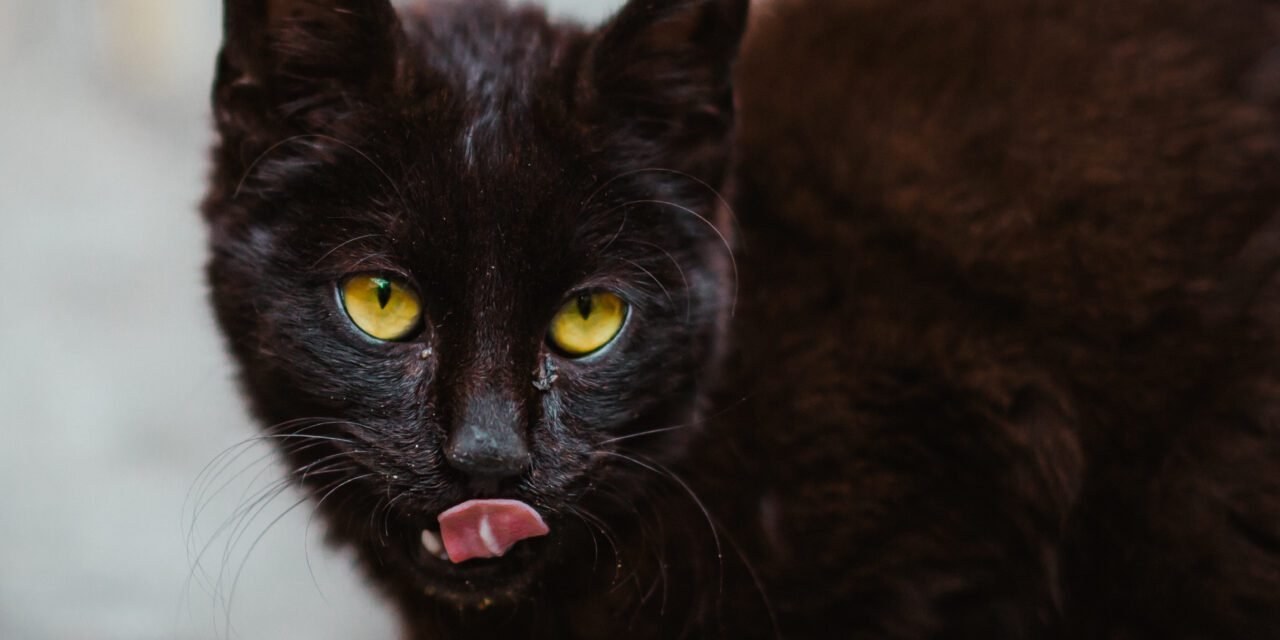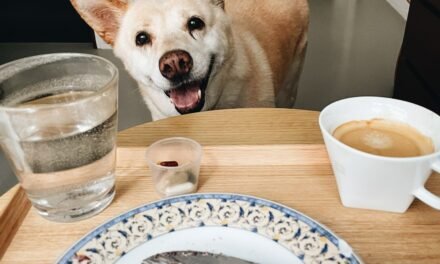Do frogs eat cat food? This is a common question among pet owners, especially those with both cats and frogs. The answer isn’t always a simple yes or no. Certain types of cat food can be beneficial for frogs, while other types can be harmful. It’s important to understand the nutritional needs of your particular frog species before offering them any type of cat food.
Frogs are carnivorous creatures, meaning they consume mostly meat-based diets. They eat a variety of insects such as flies, moths, crickets, beetles, and mosquitoes. Some frogs also eat small fish, spiders, worms, and snails. The larger the frog species, the more varied its diet usually is.
Frogs primarily catch their prey with their long and sticky tongues. They also use their powerful hind legs to capture smaller prey or to quickly jump out of danger. Frogs may also consume plant material such as fruits and vegetables if they are available to them in their environment.
Overall, frogs are opportunistic feeders that will consume whatever they can find that is suitable for their size and energy needs.
Contents
Common Types of Frog Food
Frogs are some of the most interesting animals to keep as pets, and feeding them is a great way to watch them in action. The best way to ensure your pet frog is getting all the nutrients it needs is to provide it with a variety of food types. Common types of frog food include live insects, freeze-dried insects, floating fish pellets, and bloodworms.
Live insects are a popular choice for frog owners because they stimulate natural hunting behavior and provide the necessary energy for growth. Common examples include crickets, mealworms, waxworms, earthworms, fruit flies, and houseflies. It’s important to only feed your frog live prey that are free from pesticides or other chemicals.
Freeze-dried insects are also a good option for feeding frogs as they are easy to store and prepare. They come in a variety of sizes suitable for different types of frogs and can provide essential vitamins and minerals that live insects may lack. Popular choices include crickets, mealworms, waxworms, black soldier fly larvae (BSFL), and silk worms.
Floating fish pellets are often used as an alternative to live or freeze-dried insects because they contain a balanced diet suitable for most types of frogs. Pellets come in various sizes so you can choose one that best suits the size of your frog. Bloodworms are another popular type of food used by frog owners because they contain high amounts of proteins and fatty acids needed for healthy growth and development.
What Can Go Wrong When Feeding Frogs?
When feeding frogs, there are a few potential issues that can arise. Overfeeding is one of the most common problems and can lead to health issues for the frog. Too much food at once can also lead to digestive problems or cause the frog to become overweight. Additionally, too much food in the tank or bowl can cause water quality issues as it will increase the levels of ammonia and nitrates, which can be toxic for frogs. Furthermore, food that is not nutrient-rich enough can lead to nutritional deficiencies in frogs, leading to lethargy and low immunity. Lastly, if live prey is being fed to frogs, it is important to make sure it does not contain parasites or bacteria that could be transmitted to the frog.
Overall, when feeding frogs it is important to ensure that they are getting a balanced diet with adequate nutrition as well as avoiding overfeeding and potential contaminants in food items. If any signs of illness or distress appear in the frog it is best to contact a veterinarian immediately as this could indicate a more serious underlying issue.
Is Cat Food Good for Frogs?
When it comes to feeding frogs, there are a few things to consider. Can frogs eat cat food? The answer is no. Cat food is not a suitable diet for frogs and can even be toxic to them. Frogs need a diet that is high in protein, as well as other vitamins and minerals. Cat food does not provide the proper balance of nutrients that frogs require in order to stay healthy and thrive.
Frogs need a variety of live prey items such as crickets, mealworms, wax worms, and earthworms. These provide them with the necessary proteins, fats, carbohydrates, vitamins, minerals, and other important nutrients required for optimal health. In addition to live prey items, commercial frog diets are available that provide all the necessary components for a healthy frog diet.
In summary, cat food should not be used to feed frogs. Frogs have specific dietary needs and require specific foods in order to stay healthy and thrive. Live prey items such as crickets and earthworms should be fed regularly along with commercial frog diets in order to ensure your frog gets all the necessary nutrients it needs for a long and healthy life!
How Much Cat Food Should a Frog Eat?
It is not recommended to feed a frog cat food, as it does not contain the necessary nutrients for a frog’s diet. Frogs can eat insects and other small animals, such as crickets and earthworms, which provide the vitamins and minerals they need to stay healthy. Cat food is too high in fat and protein for a frog’s diet, so it should be avoided.
The amount of food that should be given to a frog depends on its size. Smaller frogs need less food than larger ones, so it is important to monitor how much they are eating. A good rule of thumb is to feed them two or three times per week with an appropriate size portion. The portion should be no more than one-third of the frog’s stomach size.
In addition to insects and other small animals, some types of frogs can eat certain fruits and vegetables as part of their diet. It is important to research what types of foods are safe for your specific type of frog before feeding them anything new. Fruits like banana slices, apples, raspberries, blueberries, and cranberries are good choices for many kinds of frogs. Vegetables like carrots, peas, spinach leaves, and sweet potatoes can also be offered in moderation.
Frogs should not be overfed as this can lead to health problems such as obesity or digestive issues. It is important to monitor their weight regularly so you can adjust their diet accordingly if needed. If you are unsure about how much your frog needs to eat or have any other questions about their diet or care needs, you should consult with a veterinarian who specializes in amphibians.
Overall, cat food should not be part of a frog’s diet due to its high fat content and lack of essential nutrients necessary for frogs’ health and well-being. The amount of food given should depend on the size of the individual frog and only include safe foods that have been researched beforehand like fruits, vegetables, insects and small animals that are appropriate for that particular species. Monitoring your pet’s weight regularly will help ensure they stay healthy by preventing overfeeding which could lead to serious health problems down the line.

Pros and Cons of Feeding Cat Food to Frogs
Feeding cat food to frogs can be a controversial topic. On one hand, cat food may provide detailed nutrition that frogs need to stay healthy. On the other hand, some commercial cat foods may contain ingredients that are not suitable for frog consumption. Here are some of the pros and cons of feeding cat food to frogs:
Pros
– Cat food is formulated with the specific nutritional needs of cats in mind, so it provides a variety of vitamins and minerals that are important for frog health.
– Cat food is typically affordable, making it a cost-effective way to feed your frog.
– Cat food comes in convenient packaging that makes it easy to store and feed your frog without having to measure out individual servings.
Cons
– Some commercial cat foods contain ingredients such as garlic or onion powder, which can be toxic to frogs.
– Many commercial cat foods contain high levels of carbohydrates, which can contribute to obesity in frogs if they are overfed.
– Some cat foods may also contain artificial colors or flavors, which can be harmful to frogs if consumed in large quantities.
Nutritional Requirements of Different Species of Pet Frogs
Different species of pet frogs require different nutritional needs. The diet of a frog will depend on its species and will also vary based on the frog’s age and activity level. Generally, pet frogs should be fed a combination of live food, frozen food, and occasionally some fortified pellets or other prepared foods.
Live food is an important part of a pet frog’s diet and should include insects such as crickets, mealworms, waxworms, cockroaches, earthworms and others. These foods should be gut-loaded with nutritious foods prior to being offered to the frog. Gut-loading involves feeding the insects nutrient-rich foods so that they then transfer those nutrients to the frog when it eats them.
Frozen food can also be given to pet frogs in order to provide variety in their diets. Frozen bloodworms, brine shrimp, krill, tubifex worms or daphnia are all good choices for pet frogs. It is important to thaw out frozen food before feeding it to the frog so that it can digest it properly.
Fortified pellets are another option for providing nutrition to your pet frog and should generally only be used occasionally as they may not provide all the nutrients that your frog needs. Some brands of pellets are specifically formulated for different species of frogs so it is important to choose one that is appropriate for your particular pet.
Finally, you can also offer your pet frog some vegetables such as chopped greens or kale as well as some fruits such as strawberries or blueberries in moderation. Make sure any vegetables you feed your frog are chopped into small pieces so they can easily be eaten by the frog. Fruits should only be given occasionally as a treat due to their high sugar content.
Overall, providing a varied diet with fresh live food items supplemented by occasional treats such as frozen foods or fortified pellets is key for ensuring optimum health for your pet frog.
Alternatives to Feeding Cat Food to Your Pet Frog
If you own a pet frog, it’s important to provide them with the proper diet. One option is to feed them cat food, however there are many other alternatives that can provide your frog with the nutrition they need. Here are some of the best options for feeding your pet frog:
Live Insects: Live insects like crickets, worms and mealworms are a great source of protein for your pet frog. You can purchase these from a pet store or catch them from nature. Be sure to dust the insects with calcium powder or vitamin supplements before offering them to your frog.
Frozen Insects: If catching live insects isn’t an option, you can find frozen crickets, worms and mealworms at most pet stores. These are just as nutritious as their live counterparts, though they may be less active for your frog.
Frog Pellets: You can also purchase specialized pellets made specifically for frogs from most pet stores. These pellets contain all of the nutrients and vitamins that your frog needs in order to stay healthy.
Fruits & Vegetables: Fruits and vegetables like apples, oranges, sweet potatoes and carrots can provide essential vitamins and minerals for your pet frog. Be sure to chop these up into small pieces so that they’re easier for your frog to consume.

Conclusion
Frogs are not fond of cat food, and it is not a suitable diet for them. They require specific nutrients to stay healthy and meet their dietary needs, so it’s best to provide them with food designed specifically for frogs. Cat food does not contain the necessary vitamins and minerals for a frog’s health, so it is not recommended. Eating cat food may even lead to nutritional deficiencies that could be detrimental to the frog’s health.
Overall, frogs should not be eating cat food on a regular basis. If your pet frog accidentally consumes some, there should be no major harm done as long as it is an occasional occurrence. However, it’s best to provide them with the proper nutrition they need in order to stay healthy and energetic.
In conclusion, cats and frogs have different dietary needs and should not share food. Frogs should be fed frog-specific diets that contain all of the essential vitamins and minerals they need in order to thrive. Cat food does not provide these necessary nutrients and can potentially lead to nutritional deficiencies in frogs if consumed on a regular basis.





